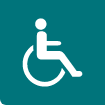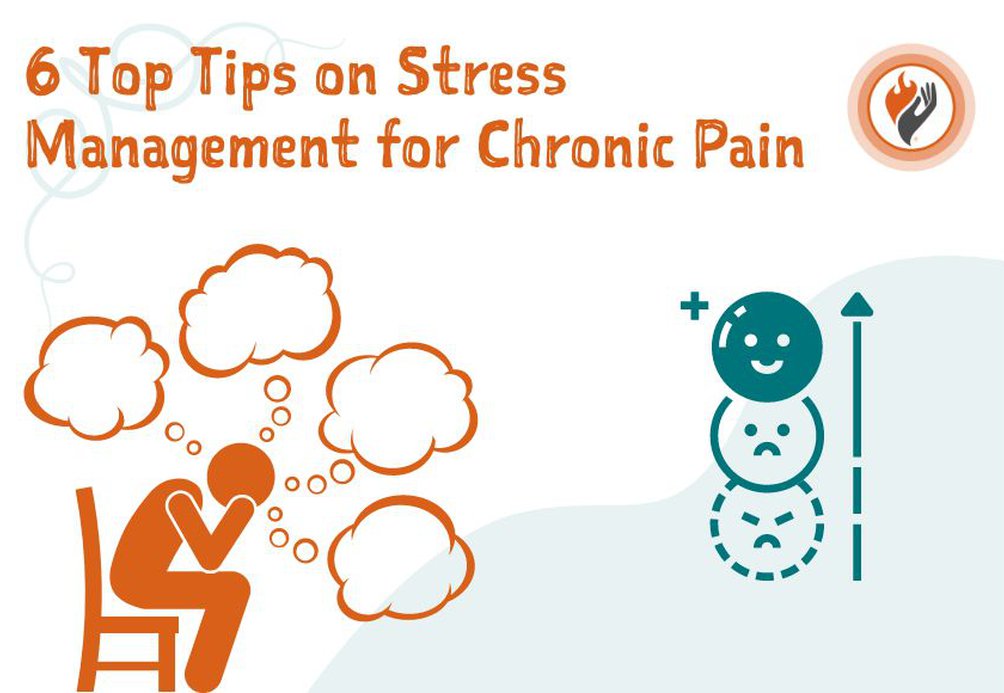We use cookies to improve your experience. By accepting you agree to our cookie policy

In recognition of Stress Awareness Month, it's essential to shine a light on the often-overlooked connection between stress and chronic pain. This intersection not only affects physical well-being but also deeply impacts mental health, creating a cycle that can be challenging to break.
The role of stress in exacerbating pain symptoms is significant. Stress can tighten muscles, reduce tolerance to pain, and heighten the body's sensitivity to discomfort, thereby intensifying the experience of chronic pain. As we navigate through this pivotal month, our focus turns to empowering individuals with effective strategies to manage stress, thereby mitigating its impact on chronic pain.
These six (6) top tips are designed by Deborah Barlow, a Specialist pain management physiotherapist, not only to provide relief but also to offer a pathway to a more balanced and pain-reduced lifestyle.

Stress Awareness Month has been taking place every April since 1992. Its purpose has been to raise awareness for the causes and 'cures' for stress while highlighting its impact on physical health too. It's all about realising that physical health and mental health aren't entirely different, and learning about how and where they overlap.
Burning Nights CRPS Support is dedicated to talking about stress and its effects, particularly on those with chronic health conditions like Complex Regional Pain Syndrome. By working together to raise awareness, we can reduce the stigma around stress and mental health conditions and get people talking about it openly!
The Stress Management Society said it best - "Think of it like building a house – laying down a single brick may not seem significant. You might start small e.g., taking deep breaths during a stressful moment, or writing down one thing you’re grateful for each day."
Relaxation techniques such as breathing exercises, listening to calming music and guided imagery. Youtube have several videos on guided imagery for relaxation
Mindfulness is paying full attention of yourself, noticing everything that is happening in your surroundings.
Apps such as Headspace and Calm can help you to pay attention to what is going on inside and outside of you in that particular moment. It is non-judgemental and it can improve your mental wellbeing by helping with anxiety and depression.
You can also learn more about mindfulness by visiting our page on How to Practice Mindfulness for Chronic Pain and CRPS.
That regular exercise could be something like chair yoga, walking, active range of movement exercises in lying, sitting or standing which will help you over time to feel looser, more relaxed and can aid with movement and overall function.
You can pick a certain time to go for that walk such as lunch time, do some exercises in bed before you get up each morning preparing you for the day ahead, when your brushing your teeth or standing at the sink and wiggling your hips.
Watching the tv and rolling your shoulders whilst doing some breathing exercises exercise can be an effective way of managing stress and can improve your mood and increase your self-confidence. It can also be effective in reducing fatigue and increase mood.
When we are in pain it is easy to listen to your inner critic which can be negative having a major impact on our stress and overall perception about how we feel. Start by reflecting and noticing what is good about your life, good traits about you and the efforts you put in and replace the negative self-critic with a more supportive friendly voice as if you were talking to a friend.
Recognise your own value and worth!
Bath with oils, calming teas, make time daily in your diary for things you enjoy that will slow things down. By practicing self-care, you start to focus on the positive and prioritise your needs
When we are in pain and feel stressed, we can become isolated. Keep connections by phone or text or in person this can keep you feeling safer and reduce anxiety.
Join the Burning Nights CRPS Support monthly online support groups to keep connected with other people who understand about CRPS or the weekly Zentangle art classes to have a bit of fun and connect with others. Visit our CRPS Events page for more information.
In conclusion, it is obvious that chronic pain and stress are intertwined and both have a knock-on effect on each other. The above tips hopefully will help you to break that vicious cycle to lower your stress levels and, in turn, lower your level of chronic pain.
Techniques such as mindfulness, regular physical activity, quality sleep, and a balanced diet are not just strategies for stress reduction but are pillars of a lifestyle that will help you in journey with chronic pain. Additionally, seeking support from healthcare professionals and engaging in a supportive community can offer personalised strategies and a sense of belonging, helping you learn to cope.
Remember, the journey to managing chronic pain and stress is personal and requires patience as well as self-compassion. Integrating these tips and practices into your daily life will help to not only improve your physical well-being but also start you on a path towards a more balanced life despite the challenges posed by chronic pain.
We use cookies to improve your experience. By accepting you agree to our cookie policy
 £
£